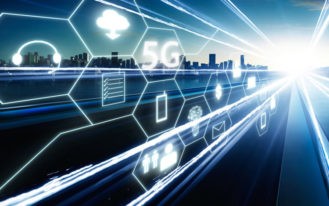Generally known as FinTech, Financial Technology has been on a high since the last couple of years. Now, with 5G in the pipeline, there’s no second thought that FinTech will scale new heights in the coming years. 5F is set to transform the way we spend, the way we save, and the way we buy financial services.
It’s a realization amongst scores of startups that modern technology and software can be used to market and sell financial services such as loans and money transfers, payments, investments, and more in a way that feels natural to millennials and other customers who are accustomed to doing everything on their tablets or smartphones.
Fearing a massive disruption to their business by flexible, agile FinTech startups, the giant retail banks are getting desperate to adopt all sorts of FinTech techniques that deem fit for the smartphone age.
Why 5G?
Why does this fresh vibe of digital banking and natively-mobile techniques need superfast 5G? As such, it would all work just fine even on 3G and 4G networks!
Well eventually, the critical role of 5G in FinTech is not actually about speed. When 5G mobile networks go live in the 2020s, we should expect smartphones good enough to provide lightning-fast downloads with a speed of more than 1Gbps. As 5G evolves, that could witness an exponential surge, hitting phenomenal download rates of up to 20gbps and upload rates of up to 10gbps.
However, 5G is not just about speed as ultra-low latency is another key component of the upcoming 5G network. Latency, i.e. the time a device takes to send a command to a remote server and receive a response, is likely to reduce from 50 milliseconds on a 4G phone to less than 1 millisecond in the 5G world. So to say the least, 5G will bring ultra-fast real-time user experience to smartphones, so much so that users will experience payment transactions and other banking processes done instantly on their mobiles. 5G means zero waiting time.
That will get all the more significant in the short-term as the usage of various third-party APIs (application programming interfaces) within banking increases, with third-party applications gaining access to bank databases to process transactions.
However, the two keywords in the FinTech space at present are blockchain (high-integrity databases whose contents can’t be tampered with without leaving any sort of evidence and cryptocurrency (i.e. peer-to-peer digital electronic currency), and while both of them are of great interest to banking establishments, neither blockchain nor cryptocurrency particularly needs the ultra-low latency that 5G has on offer. Also, 5G’s increased data rates are not a dire need for the banks.
However, 5G is a stack of three different technologies, and all FinTech companies will certainly benefit from the primary use-case of 5G; i.e. connecting more devices at low cost and low power and with a great percentage of reliability. This should inspire a rise in the number of connected devices, from wearables, home appliances and smartphones to sensors on all types of objects, clothes, and public infrastructure.
This is the Internet of Things (IoT), and 5G is more than likely to accentuate its development. With the Internet of Things in place and rising, payment technology will continually surge on the back of wearables and other similar smart devices.
As well as steering internet use in general, the IoT will not only enable a denser concentration of wearable gadgets in a geographical space but will connect them. While, at present, we have Bluetooth, RFID and several other short-range communication standards that actually keep our devices disconnected from each other, 5G will bring them together. Phones, earphones, activity bands, smartwatches, virtual/augmented reality headsets, smart glasses and eyewear like Google Glass, and flexible sensors embedded on smart clothes, will interact with one another, along with swapping data.
This will enable financial transactions to be made from just about any wearable device. In addition, since all these devices collect biometric data, data sharing among them and on the cloud will provide a robust feature for FinTech in the form of multi-layered user authentication.
Mobile Trading
5G will also mark the advent of high-frequency mobile trading that will revolutionize stock market transactions drastically. Fast buying and selling is a top priority at the stock exchange, and even fractions of seconds can make a massive difference worth thousands of dollars a month. Given today’s computerized and automated stock trading, the reduced latency of 5G (1ms) will prove vital to brokerage companies, so much that they will perhaps be amongst the first few early adopters of 5G’s microwave radio links.
However, that’s not to claim that there are no potential use-cases for implementing 5G’s ultra-low latency and super-fast data rates in FinTech for motives other than providing faster user experience.
As of now, it’s just a speculation, however, with vastly enhanced upload and download rates, advanced security measures depending on more data layers could be used, such as improved in-depth biometric user verification. Rather than face/gesture recognition or a fingerprint sensor taking place on the device, all wearables and smartphones will be having a real-time link to the cloud, thence users can expect superior finely-grained device security.
Moreover, if devices offload their complete data – including all the files such as apps, documents, and photos, along with multi-app data on financial transactions and even geographic as well as demographic information – financial companies could use of the dependable connectivity and robust cloud computing power of 5G for developing new products.
In addition, with firm network establishment of 5G, micro-payments will be possible. This means users will pay only for what and how much they use, instead of the blunt way we pay now.
While FinTech will remain disruptive in the 4G space, 5G will make room for more connected devices, increased automation and higher use of the internet. As the IoT evolves exponentially, advanced FinTech will offer frictionless, personalized payment technology, together with a new era of micro-payments.

